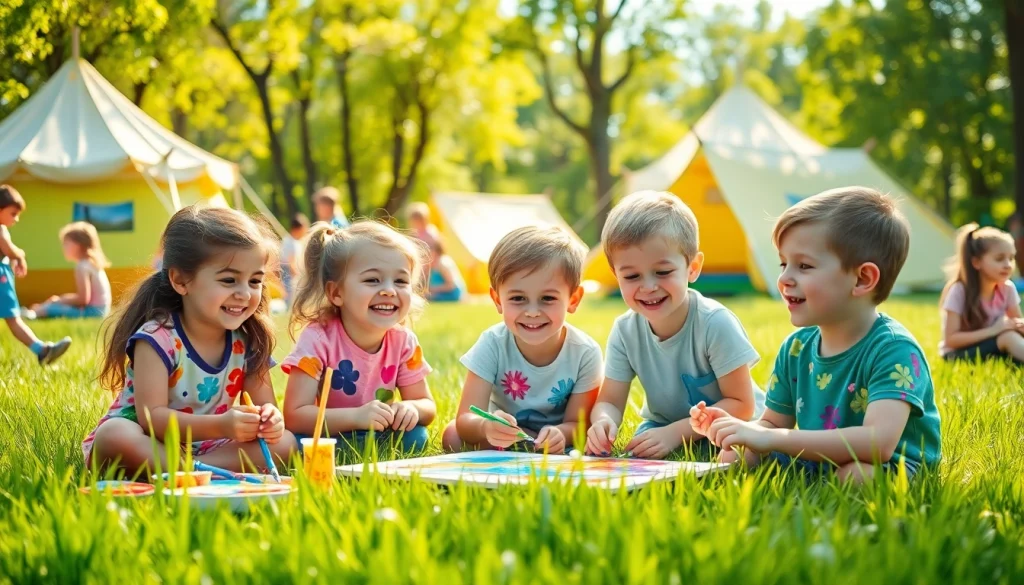Introduction to Holiday Camps
When school is out and the long days of summer beckon, parents often seek engaging and enriching experiences for their children. Enter holiday camps, offering diverse programs designed not just for entertainment but also for development. These camps create opportunities for children to explore new interests, build friendships, and develop valuable life skills. Whether your child is interested in sports, arts, crafts, or outdoor adventures, holiday camps have something to offer.
What Are Holiday Camps?
Holiday camps are organized events that provide children with various activities during school breaks. These programs can run for a few hours, days, or weeks and can be day camps or residential camps. Camps typically focus on specific themes or activities, accommodating children from diverse backgrounds and interests. They provide structured environments where children can play, learn, and grow outside the classroom setting.
Why Choose Holiday Camps for Children?
Choosing holiday camps for children can be advantageous for several reasons. Firstly, they foster independence and self-esteem as kids navigate new challenges away from their parents. Additionally, holiday camps encourage social skills by allowing campers to meet peers from different schools and neighborhoods. Many camps also focus on personal development and education, making them a perfect opportunity for children to enhance their skills in a non-traditional setting.
The Benefits of Holiday Camps
Holiday camps offer numerous benefits for children and parents alike:
- Personal Growth: Children gain confidence and independence through new experiences.
- Skill Development: Camps provide opportunities to learn new skills or hobbies, be it sports, crafting, or science.
- Physical Activity: Many camps emphasize outdoor activities, promoting physical health through play.
- Social Interaction: Children develop social skills and friendships that may last a lifetime.
- Structured Environment: Parents appreciate the structured environment where children are engaged in productive activities.
Types of Holiday Camps Available
Understanding the various types of holiday camps can help parents select the right program for their child’s needs and interests.
Outdoor Adventure Holiday Camps
Outdoor adventure holiday camps focus on activities in natural settings such as hiking, kayaking, rock climbing, and environmental education. These camps aim to instill a love for nature while teaching valuable survival skills and promoting teamwork. Children learn to navigate the outdoors, understand ecosystems, and appreciate nature, all while building lasting friendships with fellow campers.
Arts and Craft Holiday Camps
For the creatively inclined, arts and craft holiday camps provide a nurturing environment to explore various artistic mediums. From painting and pottery to photography and creative writing, these camps encourage self-expression and innovation. Children not only develop artistic skills but also learn to appreciate the arts and discover new talents that they may want to pursue further.
Sport-Focused Holiday Camps
Sport-focused holiday camps cater to those interested in physical fitness, competition, and teamwork. These camps usually offer specialized training in particular sports such as soccer, basketball, or gymnastics. Coaches often emphasize skill development, sportsmanship, and healthy competition, ensuring that children not only play for fun but also learn the importance of dedication and teamwork.
Finding the Right Holiday Camp
Finding the right holiday camp involves careful consideration of several key factors to ensure a positive experience for children.
Evaluating Camp Options
When evaluating camp options, parents should consider the camp’s focus area, such as sports, arts, or academic enrichment. Additionally, researching the camp’s reputation is essential; reading reviews, checking accreditations, and asking for references can help ensure that the camp is organized, safe, and conducive to learning.
Understanding Camp Schedules and Availability
It is vital for parents to be aware of the camp schedules and availability. Many camps fill up quickly, especially those popular for unique offerings. Consider what works best for your family’s summer calendar and whether the camp hours align with your needs. This may include half-day versus full-day options and any extended care requirements.
Considering Camp Safety and Supervision
Safety should be a primary concern when choosing a camp. Parents should inquire about staff-to-camper ratios, staff qualifications, background checks, and emergency protocols. Confirming that the camp has safety measures in place before enrollment can reassure parents regarding their child’s well-being.
Activities to Expect at Holiday Camps
Holiday camps are not just about structured activities; they also provide a wealth of experiences for children to learn and have fun.
Creative Activities at Holiday Camps
Camps offering creative activities may include painting, theater, music, and dance. These activities encourage children to think outside the box, enhance their imagination, and explore their creative abilities. Camps may offer workshops where campers can learn from artists and experts, which can be highly inspiring and motivating.
Physical Activities and Outdoor Games
Physical activities are essential in holiday camps. Expect a variety of sports, team games, and outdoor challenges that keep children active and promote healthy habits. Sports competitions foster camaraderie, while fun outdoor games help children develop agility, coordination, and teamwork skills as they learn to strategize with peers.
Social Activities and Team-Building Exercises
Social activities are crucial to the camp experience. Team-building exercises, group projects, and campfire nights allow children to connect with one another, build friendships, and learn essential social skills. These activities create a sense of community, often leading to lifelong friendships and memories.
Maximizing Your Child’s Experience at Holiday Camps
To ensure children get the most out of their holiday camp experience, preparation is key.
Preparing Your Child for Camp
Preparing children for camp can ease anxieties and enhance their enjoyment. Talk to your child about what to expect, addressing any concerns they may have. Encourage them to think about what they want to learn or achieve during their time at camp, and emphasize the importance of trying new things and meeting new friends.
What to Pack for a Holiday Camp
Packing smartly can impact your child’s comfort and enjoyment at camp. Essential items may include appropriate clothing for various activities, sun protection (such as sunscreen and hats), refillable water bottles, and a sense of adventure! Be sure to check the camp’s packing list for any specific recommendations or requirements.
Staying Connected with Camp Progress
Staying informed about your child’s experiences at camp is vital. Many camps provide regular updates through newsletters, photographs, or social media, keeping parents in the loop. Encourage your child to share their daily experiences and milestones upon returning home to foster discussion about what they learned and enjoyed during their time at camp.


